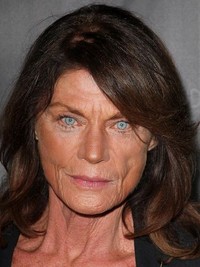Meg Foster

An intense, stage-trained leading lady of film and TV with striking blue eyes and a velvety voice, Meg Foster evolved from playing convincing hippies in the 1970s to competent career women in the 80s and 90s. Foster discovered acting while attending boarding school in Lowell, MA, and pursued this interest at New York City's Neighborhood Playhouse. She appeared in a Cornell University Summer Theater production of "John Brown's Body" before making her off-Broadway debut in "The Empire Builders." Foster moved to L.A. and soon found work in film and TV, making her feature debut in the small role of the estranged girlfriend of Michael Douglas in "Adam at 6 A.M." (1970). She advanced to leads as a hitchhiker in "Thumb Tripping" (1972) and went on to a number of films of dubious quality where her performance was the most praised element. Among the latter were Laurence Harvey's final film, "Welcome to Arrow Beach/Tender Flesh" (1974), as a potential meal of a cannibalistic veteran, and the offensive romantic comedy "A Different Story" (1978), as a lesbian who gets romantically involved with a gay man. She fared better in a Genie-nominated performance in "A Ticket to Heaven" (1981), an acclaimed Canadian drama about cult religions. Foster's subsequent film credits have been primarily low-budget genre fodder with a few brighter spots including Sam Peckinpah's "The Osterman Weekend" (1983), John Boorman's "The Emerald Forest" (1985), as the mother of a boy raised by Amazonian Indians, and John Carpenter's "They Live" (1988).